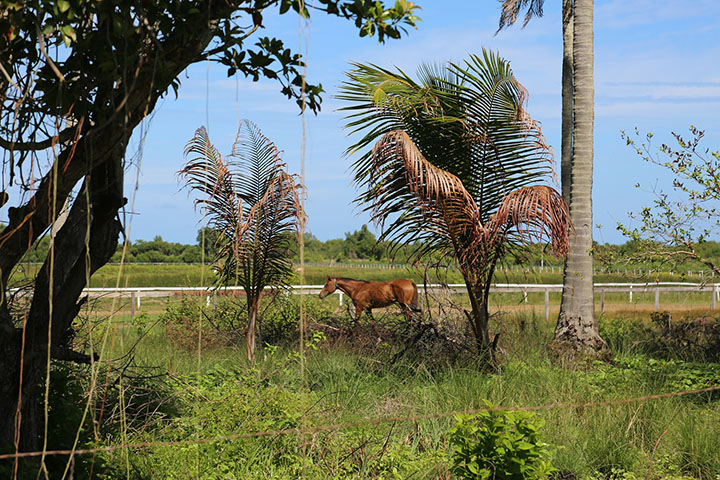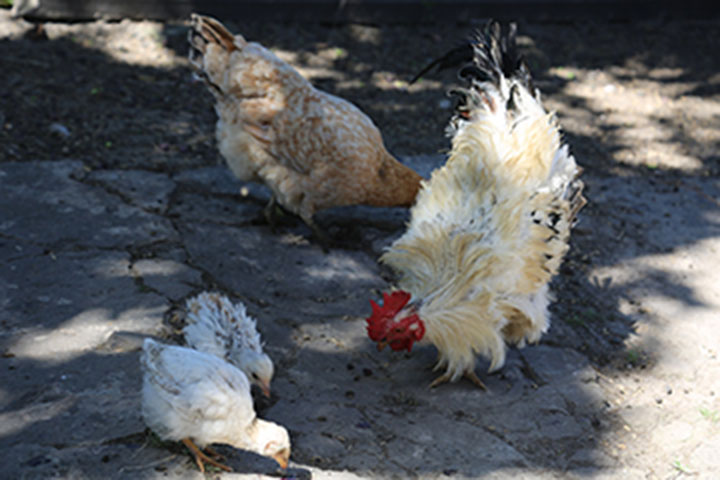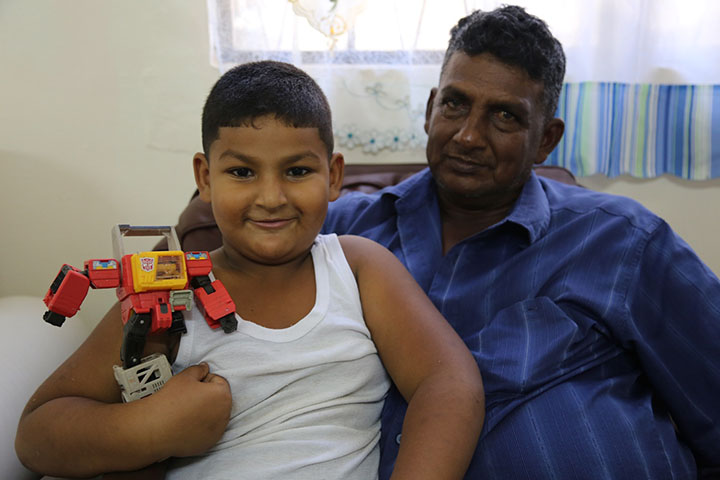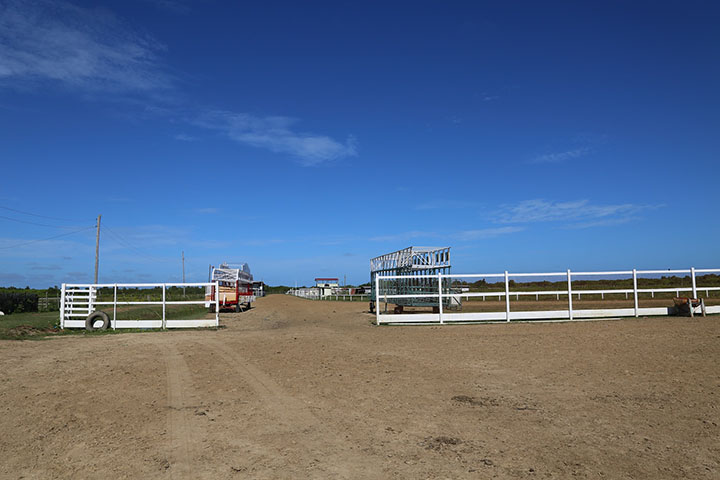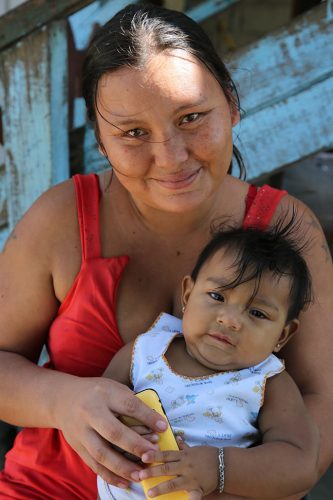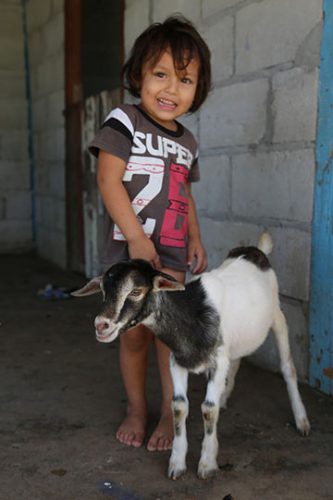Photo by Joanna dhanraj
Rising Sun is a tiny, sleepy West Coast Berbice village, approximately 76 kilometres from Georgetown; there are less than a dozen families residing there. The village comes alive during the horse racing season and this goes down at the Rising Sun Turf Club.
The village is bordered by the Atlantic Ocean to the north, the Abary River to the south and Seafield and Plantation Washington to the east and west.
Rising Sun’s current economic activity is rice farming, but it was said to have previously been a coffee plantation, possibly during Dutch occupation.
Gena Campion, who hails from Aishalton, South Rupununi, moved to Paradise, East Coast Demerara with her parents and siblings when she was nine years old. The journey she described was dotted with adventure. The move from Aishalton was tedious owing to her father having to take turns bringing them on a bicycle. One trip took three days, she said, adding that they camped at nights. This got them as far as Lethem where they boarded a truck to Georgetown. She grew up in Paradise and later met her husband to be, which led to her arrival in Rising Sun.
“It’s a nice and quiet area with nothing much to do, no sort of entertainment,” Campion said. The village does not have many youths, most of them have migrated, she added.
Noticing a skinned goat hanging on the fence under a jamoon tree, I queried its purpose. Campion said the animal was killed to ring in the New Year. Most villagers keep livestock as an economic activity, she added, so when someone slaughters an animal, they leave the head on. She stated that the head is the most distinct part of the body so leaving it on after killing the animal, means no other farmer can claim that it was a stolen goat. She rears chickens and goats and her husband rears the cattle; he also works as a labourer in the rice fields.
She also pointed out that the jamoon tree was always in season and never out of jamoons.
Campion warned that in Rising Sun, “everybody knows everybody… and if you’re not careful enough, then everybody knows everybody’s business as well.”
As we spoke she breastfed a fussy baby Anisa, while a shy Alphonso, just a month short of three years old, looked on. When I first arrived, he had kept behind his mother barely managing a smile. But he later introduced me to his pet goat ‘Emily’ and then took my hand and led me across the road to an elderly woman they called ‘Auntie Petty’.
Campion, a mother of three, explained that her eldest, a girl, was at Seafield Primary School in the next village. Rising Sun has no schools or places of worship so whenever Campion wants to go to church, she hops on a bus and 15 minutes later she’s at the Church of the Nazarene in Bush Lot.
Campion mentioned that having streetlights will be of great benefit for the community adding that just last year two busloads of students crashed in an area she said is prone to having accidents.
Seventy-year-old Petty ‘Auntie Petty’ Mohan has a hearing problem, so we kept the interview short. Having shed his shyness, Alphonso showed off his new friend to Auntie Petty. Berbice in general is rumoured to have lots of mosquitoes; they were out in full force at Mohan’s, sinking themselves into every exposed area of skin. Even Auntie Petty murmured that they always have mosquitoes at Rising Sun, but she has never so many in any other village, not even Novar Mahaicony where she grew up. She said that because the yard and nearby lot were cleaned up for the holidays, the mosquitoes were all on an escapade.
Comparing Novar to Rising Sun, Mohan said Novar is brighter and a more popular place for visitors. “Rising Sun quiet and easy more than Novar. Novar got house thick, thick. Novar does mek smoke for them mosquitoes but not Rising Sun, they do nothing about it. I would like to see them clean the vacant land them that full ah bush. That bush does mek you cyan mind nothin’ because it got rats and salipenta and snakes living in there,” she concluded.
Richard Hookumchand II was napping on his sofa when he was awakened by his son, who was keeping their shop and who thought he would be the best person for me to speak with regarding Rising Sun. His four-year-old grandson Richard Hookumchand IV, home from school, lay across the floor at his feet engrossed in a cartoon on television.
Hookumchand was born and raised in Rising Sun and in the very spot where he lives today. In his younger days, the village had only four families, all of whom were related to each other in one way or the other. Other the years, he said, families from other villages settled here.
“Rising Sun is believed to be from the colonial days and was once owned by Pierre Bacchus who later sold small portions of plots to the families; my grandfather was the second largest land owner in the village. His father came from India. The land still remains in the Hookumchand family. Mr Bacchus was believed to be in rice and cattle farming as it remains to be today,” he related.
Hookumchand himself, is a rice and cattle farmer. At ten years old began working as a help in this area tagging along with his father every day taking the animals to the backdam and back home in the afternoons after school. Back then, he said, it was an easier than it is today. He does not believe that the young men of today are lucky. He said they are at a disadvantage because they are not allowed the work life he was allowed, adding that many of them want a fast life even if means, which most times it does, a life of drugs and crime.
“We went to school and returned about four every day to milk the cows, take care of the goats, sheep and poultry animals, doing the same at 4 the following morning for many years to come. Boys in those days hadn’t the idle time to do whatever mischief they wanted,” he recalled.
“I like the quiet and peace here. The mosquitoes is an issue by itself; it’s seasonal, it comes with the rainy weather.”
One of the major disadvantages is drainage and irrigation. Hookumchand noted that the drainage system is very poor and lacking adding that he hasn’t seen any cleaning of the drains in the last two years. Last month, the rains came and so did massive flooding in the rice section. A proper fix in this area would be of great help to the farmers, along with fixing the dam that they use to transport paddy.
Speaking on streetlights, Hookumchand noted that sometime in 2014, piles were driven into the ground for the purpose of installing streetlights, which they were promised would be taken care of in the next “phase”. The community is still waiting for that phase to come around.
Hookumchand further said that the Rising Sun Turf Club is owned by Fazal Habibulla who resides in the village. It has existed since the 1970s. The club is currently preparing for a grand horse race meet on January 28.


